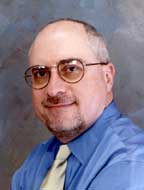Dear Reader,
Welcome to the archive of the July/August, 2004 issue Pharma Marketing News.
- Vol. 3, No. 7: July/August 2004 – CONTENTS
Upfront
The Price of Drugs
A recent AARP study indicates that manufacturers’ prices for prescription drugs rose nearly 3 times the rate of inflation. PhRMA counters that prescription drug prices increased at a lower rate than other health services. Besides, chides PhRMA, AARP should spend more effort signing up as many seniors as possible for the Medicare-endorsed discount cards. So there!
Another argument often heard from industry supporters on the issue of drug prices is: “If we cut drug profits [by lowering drug prices], research will slow down and breakthroughs won’t be there when we (or our children or grandchildren) need them.” [See recent PHARMA-MKTING thread.]
People should be thankful that they have effective drugs, say supporters, and they should keep that in mind when they complain about drug prices. In other words, stop complaining about drug prices and be thankful we do this for you! These and other typical pharma industry responses to criticism about rising drug prices may make economic sense, but they do not resonant with consumers’ perceptions and emotions. In fact, sometimes it seems more like a slap in the face than a consoling pat on the back.
I think pharma is being caught off-guard by consumerism-in general, pharma doesn’t seem to understand consumers and how to deal with consumer issues although they spend lots of money advertising to consumers and thus are partly responsible for creating the problem.
As more and more consumers pay higher co-payments for drugs (or don’t have any Rx coverage at all-the Census Bureau found last year that almost 44 million Americans had gone without health insurance for the previous year. That number has been increasing by roughly 2 million a year.), more and more consumers will be complaining about drug prices and demanding action from their representatives in Congress.
Pharma needs to realize that it just can’t “win the argument.”
The industry should stop arguing about drug prices, especially trying to make the price of drugs seem insignificant compared to other healthcare costs, and actually do more to lower prices while maintaining the profits they need.
Is it possible? A few members of the PHARMA-MKTING online discussion group think so. See the recent thread on this topic.
There is a 500-lb gorilla lurking here-the executive order by the president calling for the widespread deployment of health information technology within 10 years.
At a recent National Health Information Infra-structure conference I attended in Washington, DC, Dr. Mark McClellan, administrator of CMS, said that the new Medicare Law gives the government “new authority to move forward” with the rapid deployment of ePrescribing and other technologies that will reduce costs by allowing Medicare to pay for results. The pharma industry, in other words, will need to guarantee results worth the higher price of their products and the government will be able to use technology to accurately measure outcomes and hold drug companies accountable.
IMHO,

![]()
John Mack, Publisher and Editor
editor@pharmamarketingnews.com
Article Summaries
FEATURE ARTICLE
California’s Physician Prescribing Act: A History of Twists and Turns
By John Mack
California Assembly Bill 262 (AB 262) was introduced in February, 2003, just a few months before the Health Information Portability and Accountability Act (HIPAA) Privacy Rule became effective in April, 2003. Back then the bill was aimed at preventing the disclosure by healthcare providers of patients’ medical information for marketing purposes without prior patient authorization.
Since then, the bill has undergone many changes and now, if passed, would regulate the sale of physician prescribing data by pharmacists to pharmaceutical data vendors such as IMS Health. The bill is now known officially as the “Physician Prescribing Practices Act.”
This article traces the changes in the bill as it wended its way through various committees. It describes the provisions that may limit the use of physician prescribing data by pharmaceutical marketers, identifies organizations that have taken a position in favor and against the bill, and discusses the arguments on both sides of the issue.
Topic headings:
- Twists and Turns
- Data Vendors (definition)
- Where It Stands Today
- Uses of Prescriber Data
- Arguments in Favor
- Arguments in Opposition
- What Next?
More…
Order the Full Article Reprint – $6.95 PMN37-01
Issue: Vol. 3, No. 7: July/August 2004
Word Count: 2457
TOPICS: Physician Marketing | Privacy | Sales Force Effectiveness/Productivity
CONFERENCE HIGHLIGHT
A Crisis in Professional Detailing
By John Mack
Although many people argue that physician detailing is inefficient, is often unproductive, and is difficult to do effectively, it is still “the best way for a doctor to find out about a product,” according to Richard A. Bravasso, EVP/COO, Pharmedica Communications, LLC. He was speaking at a recent eyeforpharma conference on Sales Force Effectiveness, where he also moderated a panel of physicians who gave frank insights into what physicians want from pharmaceutical sales reps.
Two physicians — one a specialist (cardiologist) and one a primary care physician — offered their insights on how pharmaceutical companies can improve their relationships with physicians.
Topic headings:
- Not Just Donuts, Coffee, and Pizza
- Trends Impacting Effectiveness
- What Do Doctors Want?
- Good Rep vs. Bad Rep
- Samples & Patient Education
- Sales Rep Preparedness
- Local Dinner Meetings
- Closing Remarks and Demonstration
More…
Order the Full Article Reprint – $6.95 PMN37-02
Issue: Vol. 3, No. 7: July/August 2004
Word Count: 1698
TOPICS: Physician Marketing | Customer Relationship Management (CRM) | Sales Force Effectiveness/Productivity
CONFERENCE HIGHLIGHT
The Targeted Model: The Future of Pharmaceutical Marketing?
By John Mack
Remember the good days of pharmaceutical marketing? When pharmaceutical reps and doctors had personal relationships? When the sales rep was the dominant influencer of physician prescribing behavior? When reps were knowledgeable and provided the physician with useful information that couldn’t be gotten anywhere else?
Well, the days of the traditional marketing/sales model are over according to Rick Blockinger, Senior product Director, Gastroenterology, Janssen Pharmaceutica. Speaking at a recent DMA Pharmaceutical Marketing Conference in Princeton, NJ, Blockinger highlighted well-known survey data documenting the decline in effectiveness of the typical pharmaceutical sales rep.
Topic headings:
- Rethinking the Brand Plan
- What We Need on the Physician Side
- What We Need on the Consumer Side
- Challenges
More…
Order the Full Article Reprint – $9.95
PMN37-03



![6 Digital Tools at the Center of Healthcare Digitalization [INFOGRAPHIC]](http://ec2-54-175-84-28.compute-1.amazonaws.com/pharma-mkting.com/wp-content/uploads/2021/04/6DigitalTools_600px-218x150.jpg)




![6 Digital Tools at the Center of Healthcare Digitalization [INFOGRAPHIC]](http://ec2-54-175-84-28.compute-1.amazonaws.com/pharma-mkting.com/wp-content/uploads/2021/04/6DigitalTools_600px-100x70.jpg)




